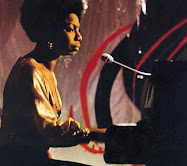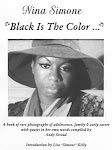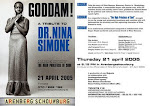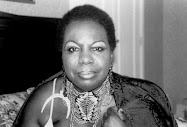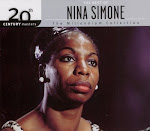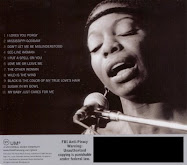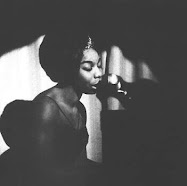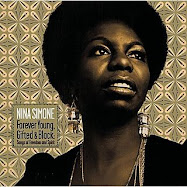
Esperanza Spalding
Best New Artist Grammy in 2011
Esperanza Spalding (born October 18, 1984) is an American multi-instrumentalist best known as a jazz bassist and singer, who draws upon many genres in her own compositions. Spalding grew up in the King neighborhood of Portland, Oregon, a neighborhood she describes as "ghetto" and "pretty scary". Her mother raised her and her brother as a single parent. Spalding has a diverse ethnic background. She notes, "My mom is Welsh, Hispanic, and Native American, and my father is black." She also has an interest in the music of other cultures, including that of Brazil, commenting, "With Portuguese songs the phrasing of the melody is intrinsically linked with the language, and it’s beautiful". Her mother shares Spalding's interest in music, having nearly become a touring singer herself. But while Spalding cites her mother as a powerful influence who encouraged her musical expansion, she attributes her inspiration for pursuing a life in music to watching classical cellist Yo-Yo Ma perform on an episode of Mister Rogers’ Neighborhood when she was four.
By the time Spalding was five, she had taught herself to play the violin and was playing with the Chamber Music Society of Oregon. Spalding stayed with the Chamber Music Society of Oregon until she was fifteen and left as concertmaster. Due to a lengthy illness when she was a child, Spalding spent much of her elementary school years being homeschooled, but also attended King Elementary School in Northeast Portland. During this time she also found the opportunity to pick up instruction in music by listening to her mother's college teacher instruct her mother in guitar. According to Spalding, when she was about 8 her mother briefly studied jazz guitar in college; Spalding says, "Going with her to her class, I would sit under the piano. Then I would come home and I would be playing her stuff that her teacher had been playing."
Spalding also played oboe and clarinet before discovering the bass in high school. She is able to sing in English, Spanish and Portuguese. Spalding had begun performing live in clubs in Portland, Oregon as a teenager, securing her first gig at 15 in a blues club when she could only play one line on bass. One of the seasoned musicians with which she played that first night invited her to join the band's rehearsals "so she could actually learn something", and her rehearsals soon grew into regular performances spanning almost a year. According to Spalding, it was a chance for her to stretch as a musician, reaching and growing beyond her experience. Her early contact with these "phenomenal resources", as she calls the musicians who played with her, fostered her sense of rhythm and helped nurture her interest in her instrument. She does not consider herself a musical prodigy. "I am surrounded by prodigies everywhere I go, but because they are a little older than me, or not a female, or not on a major label, they are not acknowledged as such," says Spalding.
Gary Burton, Executive Vice President at Berklee, said in 2004 that Spalding had "a great time feel, she can confidently read the most complicated compositions, and she communicates her upbeat personality in everything she plays." Ben Ratliff wrote in The New York Times on July 9, 2006 that Spaldings voice is "light and high, up in Blossom Dearie's pitch range, and she can sing quietly, almost in a daydream" and that Spalding "invents her own feminine space, a different sound from top to bottom." Spalding was the 2005 recipient of the Boston Jazz Society scholarship for outstanding musicianship. Almost immediately after graduation from college later the same year, Spalding was hired by Berklee College of Music, becoming one of the youngest professors in the institution's history, at age 20. As a teacher, Spalding tries to help her students focus their practice through a practice journal which can help them recognize their strengths and what they need to pursue.
Esperanza Spalding blends jazz, R&B, Brazilian vocalese and classical music. Her works have proved to have broad appeal at a moment when many in the music industry were fretting that young people were turning away from jazz en masse. She's managed that rare feat: earning raves from the most discriminating jazz aficionados while also attracting a loyal fan base all over the globe. It also helps that Spalding has friends in high places. President Obama invited her to perform at the White House twice, as well as at his 2009 Nobel Peace Prize ceremony. Her new album, Chamber Music Society, harkens back to her classical music training. For Spalding, classical music is "music among friends."
A broad contingent of Spalding's fans, especially within but certainly not limited to the jazz community, knew she has winning musicianship. But few believed she had even a puncher's chance at the actual award. Especially for its highest-profile categories, the Grammys tend to reward top-selling acts signed to major record labels, regardless of musical merit. And with teenage heartthrob Justin Bieber in the running — not to mention Drake, Florence and the Machine and Mumford and Sons — her missing-out seemed a foregone conclusion. The Recording Academy had never given this honor to a jazz artist before ' Best New Artist Grammy in 2011'.
Jun 17, 2011
Society HAE got a chance to sit down for an intimate conversation with Esperanza Spalding at The Roots Picnic in Philadelphia. We chat about her music, her creative process, the importance of studying your craft, and how jazz and live instrumentation are being revitalized.
































